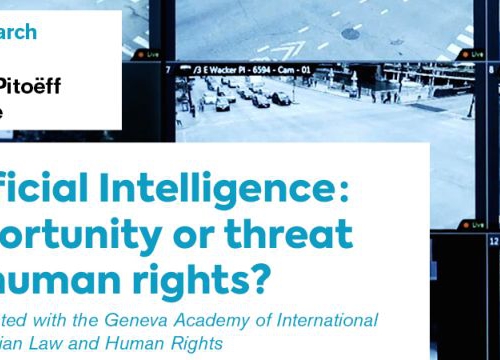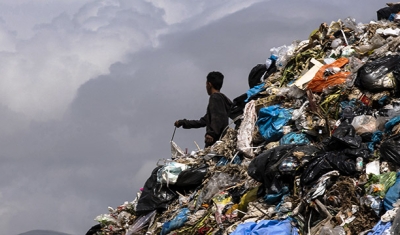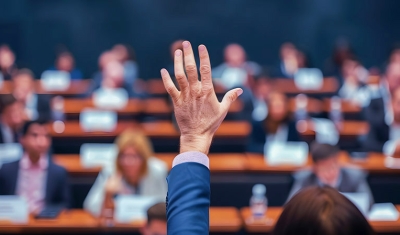Artificial Intelligence: Opportunity or Threat for Human Rights?
Event


FIFDH

The International film festival and forum on human rights (FIFDH) and the Geneva Academy co-organize this debate on artificial intelligence (AI).
AI is already ubiquitous, in our smartphones, our applications, and our search engines. Robots, algorithms and big data have invaded our dinner conversations. From what dream were they born? For what purpose? Research in AI is now funded in the billions of dollars. But how do we ensure that machines programmed by humans respect ethics and make moral choices? Will Artificial Intelligence and big data ever be used to pre-emptively identify suspected individuals and declare them suspicious? To reduce freedom of expression and dissent? To select and sort out migrants and refugees? Or to select those who will be entitled to an education? Or to care?
Debate
Panelists
- Flynn Coleman, international human rights lawyer, author, and social entrepreneur
- Solange Ghernaouti, Professor at the University of Lausanne and international expert in cybersecurity and cyber defense
- Lorna McGregor, Law Professor at the University of Essex, co-director and principal investigator of a project on human rights, big data, and technology
Moderator
- Bruno Giussani, TED Global Curator and Chairman of the International Film Festival and Forum on Human Rights (FIFDH)
Film
The debate will be preceeded by the screening of the film Pre Crime.
Pre Crime
By Monika Hielscher and Matthias Heeder
Would you entrust your freedom to an algorithm? Designed by Philip K. Dick, and popularized by Spielberg's Minority Report, "pre-crime" is a surveillance technique designed to identify people likely to break the law. Far from science fiction, the method is widely used today. But how to guarantee the accuracy of the data? Who controls it? Who benefits?











